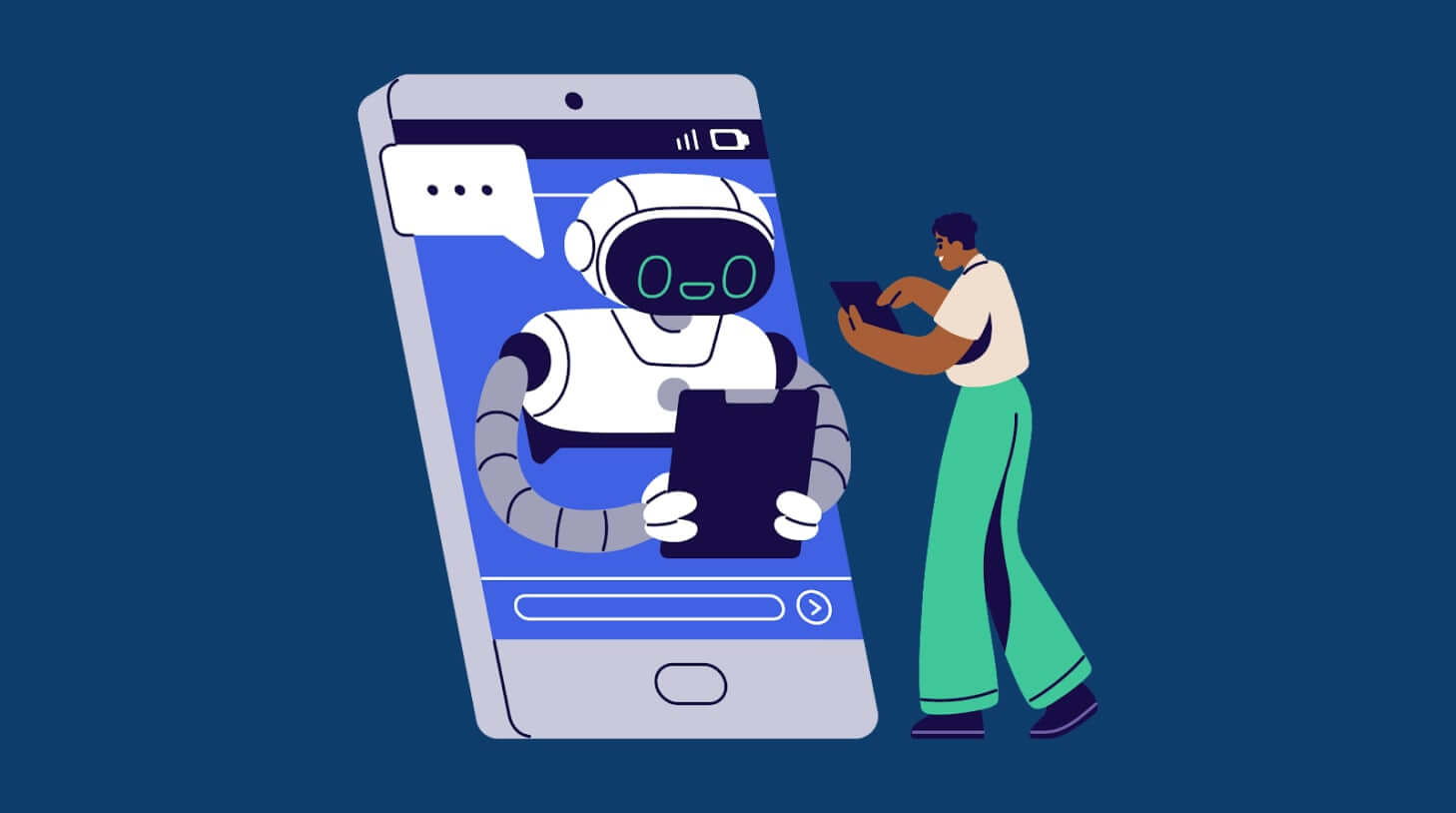Inspire your workforce to embrace and excel with AI
For HR professionals and small and medium-sized business (SMB) employers, understanding and navigating the new terrain of AI is not just an option but a strategic choice to ensure their organizations thrive. Here's how to inspire your workforce towards AI.

The emergence of AI has sparked a duality of emotions among the workforce. A recent McKinsey podcast highlights the dilemma between professionals who wonder at AI’s potential and those who fear its inherent risks.
HR stands at the forefront of this technological frontier, tasked with demystifying AI and guiding employees through its integration. With the considerable employee resistance in mind – 40.5% according to Workable’s AI in Hiring survey – this can be a difficult task for you.
The challenge lies in balancing the curiosity to explore AI’s possibilities with the caution necessary to address its complexities and ethical considerations.
It’s up to you to make the decision and inspire your workforce to excel with AI technology tools.
Contents
Skip the lag, embrace the new technologies
According to Gartner, a staggering 76% of HR leaders believe that failing to adopt AI within the next 12 to 24 months will leave their organizations lagging behind.
This statistic underscores the urgency with which HR must not only understand AI but also lead its ethical and effective implementation. The role of HR is evolving from administrative gatekeepers to strategic pioneers, steering their organizations through the uncharted waters of AI integration.
AI’s impact on jobs
One of the most pressing concerns with AI is its impact on employment.
Contrary to the popular narrative of job replacement, the reality is more nuanced.
An IBM study revealed that while roles will undoubtedly transform, they are more likely to be augmented by AI than outright replaced. In fact, 87% of executives believe that AI will enhance employee capabilities rather than diminish them.
This insight is crucial for HR professionals as they seek to reassure employees and reframe AI as an opportunity for growth and innovation rather than a threat to job security.
Pioneering companies like PwC and Walmart have set compelling examples. PwC’s commitment to upskill all 65,000 of its employees on generative AI, including tools like ChatGPT, signifies the importance of comprehensive AI literacy.
Similarly, Walmart’s AI Playground allows employees to experiment with AI within a structured and safe environment. These initiatives demonstrate how organizations can mitigate fears and build confidence by providing hands-on learning experiences with AI.
Leadership in the AI era
The journey toward AI integration is not without its ethical and practical challenges.
Over one-third of HR leaders expect to lead their organization’s enterprise-wide AI ethics approach, according to Gartner.
This responsibility underscores the crucial role of leadership in setting a clear and ethical direction for AI adoption.
Leaders must not only understand the technical aspects of AI but also its broader implications on organizational culture, ethics, and governance.
Related: Ethical AI: guidelines and best practices for HR pros
AI as a pillar of HR strategy
The strategic importance of AI in HR cannot be overstated.
A Conference Board survey of CHROs found that 61% plan to invest in AI to streamline HR processes in 2024. Additionally, according to Workable’s AI in Hiring report, nearly two in three have used some form of AI when hiring in the last year.
This investment is not just a trend, but a recognition of AI’s potential to impact everything, from recruitment and onboarding to performance management and employee engagement.
For HR professionals, the challenge lies in identifying the areas where AI can deliver the most value, securing the necessary resources, and implementing solutions that align with the organization’s strategic objectives.
1. Fostering a AI-fluent workforce
As the workplace becomes increasingly diverse, HR must ensure that AI initiatives resonate across all generations.
The concept of reverse mentoring, where younger, digitally-savvy employees guide their older counterparts, can be particularly effective.
This approach not only facilitates knowledge sharing but also fosters a culture of inclusivity and continuous learning.
By engaging employees of all ages in AI learning and experimentation, organizations can harness a wealth of perspectives and experiences, driving innovation and adaptability.
2. Realizing the potential
Real-world case studies provide invaluable insights into the practical application and impact of AI in HR.
For instance, consider a company that implemented an AI-powered recruitment tool like DAOU Vineyards. This tool not only streamlined the application process but also reduced unconscious bias, leading to a more diverse and qualified candidate pool.
Another example is a global retailer that used AI to analyze employee feedback like PaneraTech, enabling leadership to address concerns promptly and boost employee satisfaction.
These stories not only illustrate the potential of AI but also provide a blueprint for other organizations looking to embark on a similar journey.
3. Addressing fears and misconceptions
Despite its potential, AI is often shrouded in myths and misconceptions. HR has a critical role in demystifying AI, providing clear and factual information, and addressing common fears.
For example, while some worry about job displacement, the reality is that AI is more likely to augment jobs and create new opportunities.
By proactively addressing these concerns and highlighting the positive aspects of AI, HR can help build a foundation of trust and openness, paving the way for successful adoption.
4. Staying ahead in the AI race
In the rapidly evolving landscape of AI, continuous learning and adaptation are key. HR professionals must stay informed about the latest developments, tools, and best practices in AI.
This requires a commitment to ongoing education and a willingness to experiment and learn from both successes and failures.
By fostering a culture of curiosity and resilience, HR can ensure that their organizations not only keep pace with the AI revolution but also leverage it to drive innovation, efficiency, and competitive advantage.
Embrace AI not as a challenge to overcome but as a catalyst for transformation and success.
By investing strategically, fostering a multigenerational workforce, sharing success stories, demystifying AI, and committing to continuous evolution, HR professionals and SMB employers can inspire their teams to embrace and excel with AI.
Frequently asked questions
- How can HR inspire employees to embrace AI?
- HR can inspire employees by demystifying AI, emphasizing its benefits, offering hands-on learning experiences, and showcasing success stories of AI augmenting roles and enhancing capabilities.
- What is HR's role in AI implementation?
- HR is pivotal in ethically and effectively implementing AI, transitioning from administrative roles to strategic pioneers, guiding organizations through the nuances of AI integration.
- How does AI impact job security?
- AI often augments rather than replaces jobs. Studies show it's likely to enhance employee capabilities, creating opportunities for growth and innovation in various roles.
- How can organizations address AI-related fears among employees?
- Organizations can address fears by providing factual information, promoting a culture of continuous learning, and engaging employees in AI initiatives to demonstrate its benefits and potential.
- What are some examples of successful AI integration in HR?
- Companies like PwC and Walmart have successfully integrated AI by upskilling employees, and creating AI learning environments, thereby reducing biases in hiring and improving employee satisfaction.




